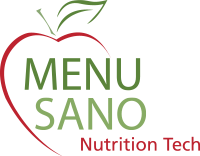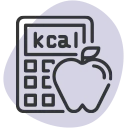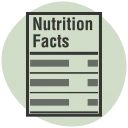In the dynamic marketing landscape, especially in food and wellness products, health claims are pivotal in influencing consumer decisions. However, leveraging health claims ethically and effectively requires a comprehensive understanding of nutrition analysis and regulatory compliance.

What are Health Claims?
Health claims are simply relationships between a food, dietary supplement, or ingredient and its effect on health. They are powerful tools for marketers seeking to highlight the health benefits of their products.
Understanding Nutrition Analysis
Nutrition analysis involves assessing the nutrient content of food products. This process provides valuable insights into the nutritional value of foods, detailing essential components such as calories, macronutrients (protein, fat, carbohydrates), vitamins, and minerals. Analyzing nutrition data helps manufacturers and marketers make informed decisions about product positioning and health claims.
Read more: Understanding Nutrition Analysis: What Is It?
Leveraging Health Claims
Choosing the Right Health Claims
Selecting appropriate health claims requires a deep understanding of regulations and consumer preferences. Opt for claims that resonate with your target audience and align with scientific evidence. Through nutrition analysis, you discover that your granola bar is indeed a “good source of fibre,” containing 5 grams per serving.
To capitalize on this nutritional benefit, you decide to use the health claim “High in Fiber” on your packaging and marketing materials. This claim is not only supported by the nutrition analysis but also resonates with your target audience’s desire for healthy snacks. By selecting this specific claim, you communicate a clear and compelling message about the product’s nutritional value, potentially attracting consumers seeking fibre-rich food options.
Substantiating Claims with Nutrition Analysis
Substantiating claims with nutrition analysis involves presenting factual statistics and numbers to support assertions about a product’s nutritional benefits. According to a study published in the Journal of Nutrition Education and Behavior, nearly 80% of consumers consider the nutritional content of food products important when making purchasing decisions and seek out specific nutritional claims on product labels, such as “low sodium” or “high in vitamins”.
Implementing Nutrition Analysis in Marketing Strategies
Product Labeling and Packaging
Enhancing product labelling and packaging with insights from nutrition analysis is key to effectively communicating a product’s nutritional benefits to consumers. Clear and informative packaging can significantly influence purchasing decisions. By integrating nutrition analysis findings into product labels and packaging, businesses can capture consumer attention and convey the unique nutritional advantages of their products. This strategic approach not only informs consumers but also enhances product visibility and marketability on store shelves.
Digital Marketing Campaigns
Integrating insights from nutrition analysis into digital marketing campaigns is essential for educating consumers about a product’s nutritional value. Engaging content across social media platforms, blogs, and newsletters can effectively highlight specific nutritional benefits and health claims. By leveraging nutrition analysis findings, businesses can create compelling digital content that resonates with their target audience. This approach not only enhances consumer awareness but also strengthens brand credibility and fosters customer trust in the product’s nutritional integrity.
Collaboration with Health Professionals
Collaborating with health professionals is a strategic way to enhance the credibility of health claims based on nutrition analysis. By partnering with nutritionists, dietitians, or other experts, businesses can gain valuable insights and endorsements for their products. These professionals can provide scientific validation and communicate the nutritional benefits effectively to consumers. Such collaborations not only strengthen the authenticity of health claims but also build trust and confidence among consumers seeking reliable information about food products.

Complying with Regulations
FDA Guidelines
Adhering to FDA guidelines is crucial when making health claims based on nutrition analysis. It is important to ensure that all statements are accurate, truthful, and supported by scientific evidence. By complying with FDA regulations, businesses can maintain transparency and integrity in their marketing communications. This approach not only avoids potential legal issues but also builds consumer confidence in the validity of the health claims associated with the product.
CFIA Guidelines
Adhering to CFIA guidelines is essential when making health claims based on nutrition analysis in Canada. It’s important to ensure that all claims are accurate, truthful, and supported by scientific evidence, following the specific regulations set forth by CFIA. By complying with CFIA regulations, businesses can uphold transparency and integrity in their marketing communications within the Canadian market. This approach not only helps avoid potential regulatory issues but also reinforces consumer confidence in the validity of health claims associated with the product in Canada.
FSA Guidelines
Adhering to the guidelines of the UK’s Food Standards Agency (FSA) is crucial when making health claims based on nutrition analysis in the UK. It is important to ensure that all claims are accurate, truthful, and supported by scientific evidence, in line with the regulations established by the FSA. By complying with FSA guidelines, businesses can uphold transparency and integrity in their marketing communications targeted at consumers in the UK. This approach not only helps prevent potential regulatory issues but also reinforces consumer trust in the accuracy and reliability of health claims associated with the product in the UK market.
Nutritional Labeling Laws
Compliance with nutritional labelling laws is essential for businesses marketing food products. It is crucial to stay updated on and adhere to the specific regulations and requirements established by regulatory bodies such as the FDA, CFIA, or FSA. By ensuring accurate and transparent nutritional labelling, businesses can demonstrate their commitment to consumer health and safety. This approach not only helps meet legal obligations but also fosters consumer confidence and trust in the product’s nutritional information.
Read more: What You Need to Know About the New Front of Packaging Labelling Laws in Canada
Health Claims and Nutrition Analysis with MenuSano
Businesses can leverage MenuSano to simplify the process of nutritional analysis and labelling. MenuSano is a user-friendly software that allows food businesses to analyze recipes, calculate nutrition facts, and generate accurate nutritional labels compliant with regulatory standards. Additionally, they can streamline their compliance efforts and provide consumers with clear, comprehensive information about the nutritional content of their products.
Nutrition analysis is a powerful tool for crafting compelling health claims in food marketing. By leveraging accurate and substantiated nutrition data, businesses can enhance product credibility, engage consumers, and foster long-term brand loyalty. Implement these strategies thoughtfully to drive growth and success in the competitive food industry.



















